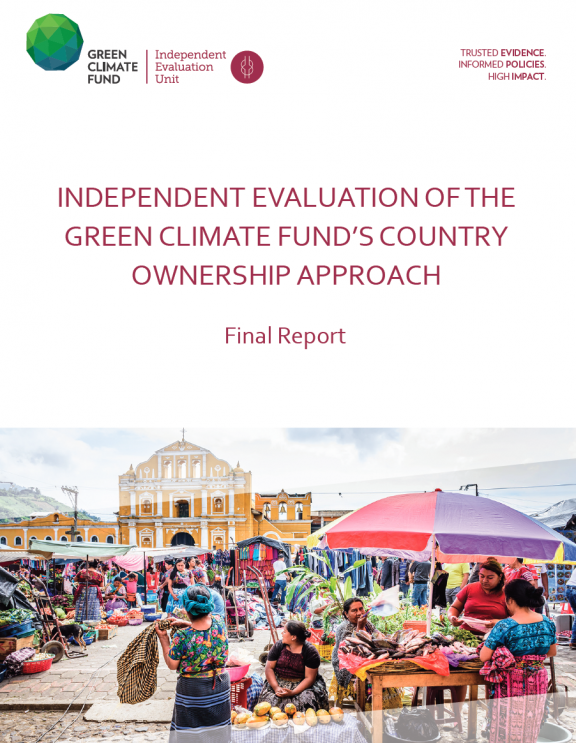The IEU releases evaluation of the GCF's country ownership approach
At its twenty-first meeting in October 2018, the Board of the Green Climate Fund (GCF) approved the 2019 Work Plan of the Independent Evaluation Unit of the GCF. A key element of this plan was to conduct an independent evaluation of the GCF's country ownership approach (COA). Country ownership is a core GCF principle, as reflected in the GCF Governing Instrument.
What is country ownership?
The IEU built an expansive definition of country ownership, highlighting three important pillars.
- Countries lead and engage: Countries lead strategic processes to identify GCF investments to meet their own climate needs and undertake meaningful consultation with stakeholders.
- Countries have institutional capacity: Stakeholders in-country have the capacity to plan, manage and implement activities that address GCF objectives and are supported by GCF.
- GCF and countries share responsibilities and accountability: The GCF, accredited entities and recipient countries develop and adopt global best practices in planning, delivery and reporting on GCF investments (that help countries transition to low-emissions and high resilience pathways), and are accountable to each other for following and implementing these practices.
Key questions in our evaluation
- How does GCF conceptualize and operationalize country ownership?
- How does GCF contribute to country leadership and engagement?
- How effective is GCF in building institutional capacity (in countries and in itself) for country ownership?
- How effective is GCF in using its business model (accreditation and direct access) for supporting country ownership?
Key recommendations in our evaluation
- Represent the climate action needs of non-state actors by operationalizing a normative standard of country ownership that extends beyond the national government.
- Remove country ownership from the list of six investment decision-making criteria and use as a single, minimum eligibility criterion.
- Initiate a proactive strategy that provides a sound rationale for developing country programmes. The strategy should incentivize countries to develop country programmes that foster agreement between governments and non-government actors and identify high-impact and paradigm-shifting pipelines.
- Create a handbook of best practices and provide training support for the secretariat in national designated authorities and focal points.
- Encourage international accredited entities to co-develop and co-implement GCF investments jointly with nominated direct access entities. This will effectively build direct access entity capacity and ensure international accredited entity investments are more country-led.
- Improve transparency by promoting the public release of documents relating to country programmes and annual performance reports.
- Build a strategy that encourages countries to take a longer view of direct access entity nominations. The GCF could help countries make informed decisions on direct access entity nominations by providing more clarity about resource availability.
Have thoughts or questions about the report?
Tweet us at @GCF_Eval using the hashtag #IEUCOA
